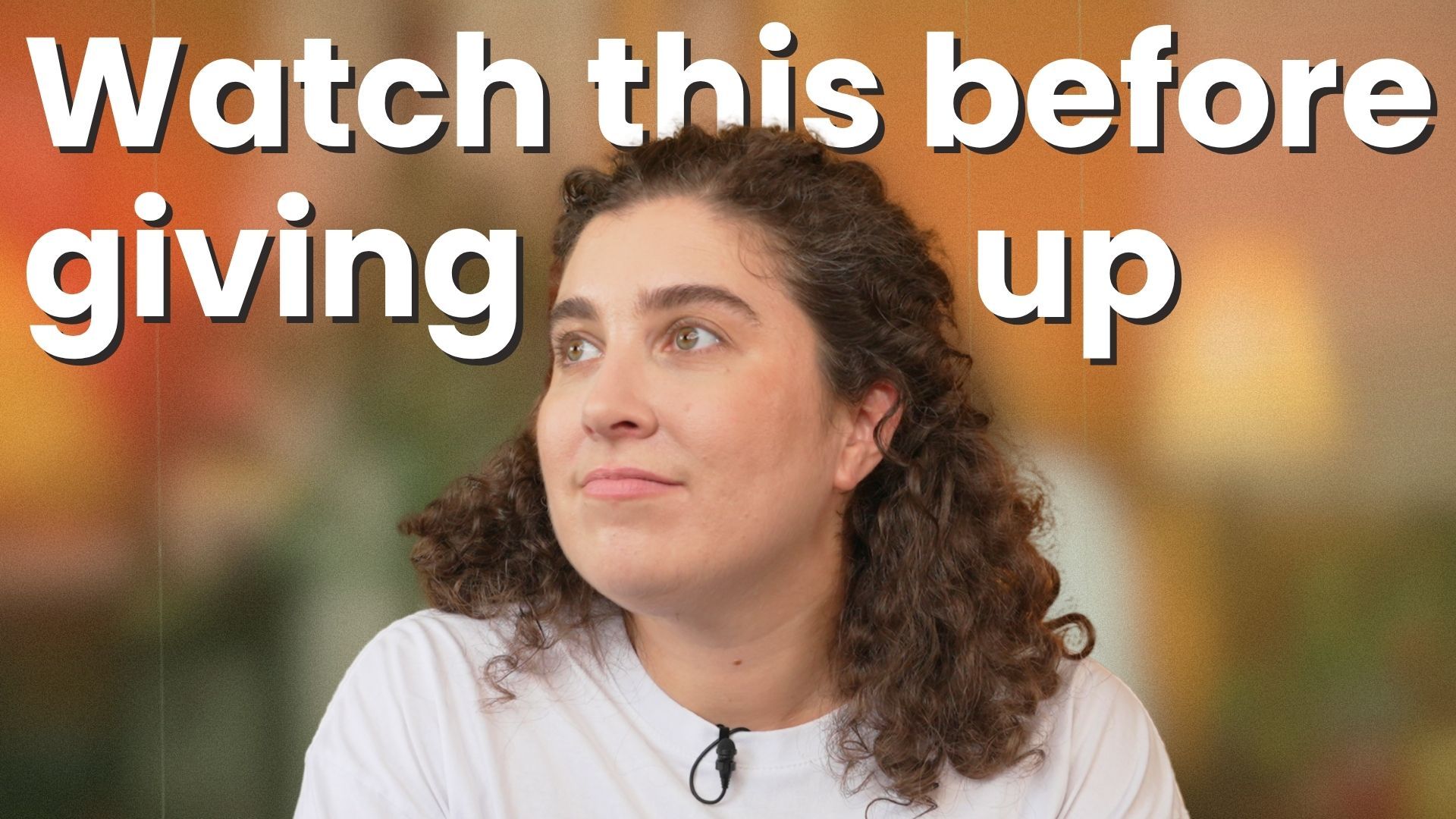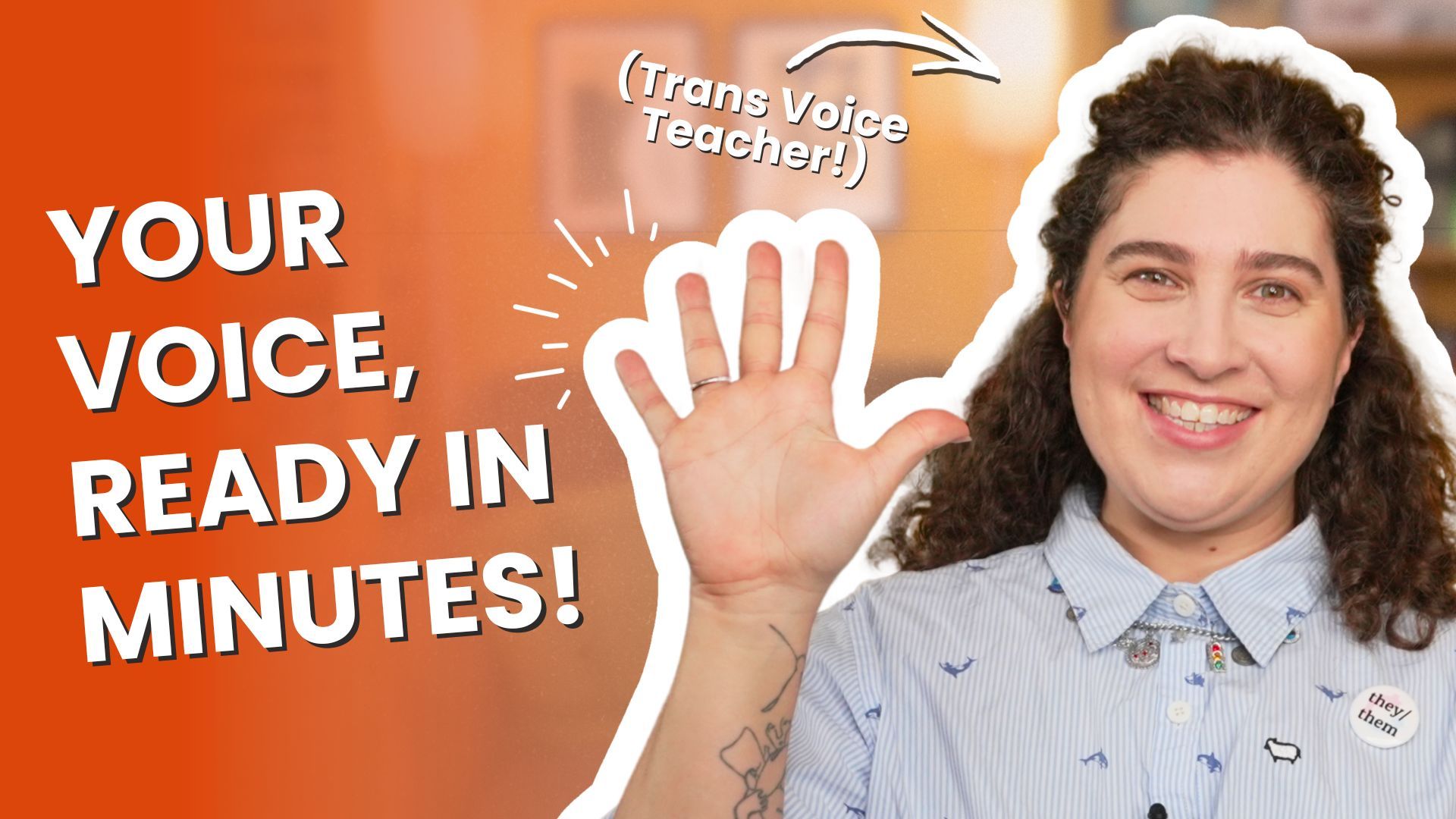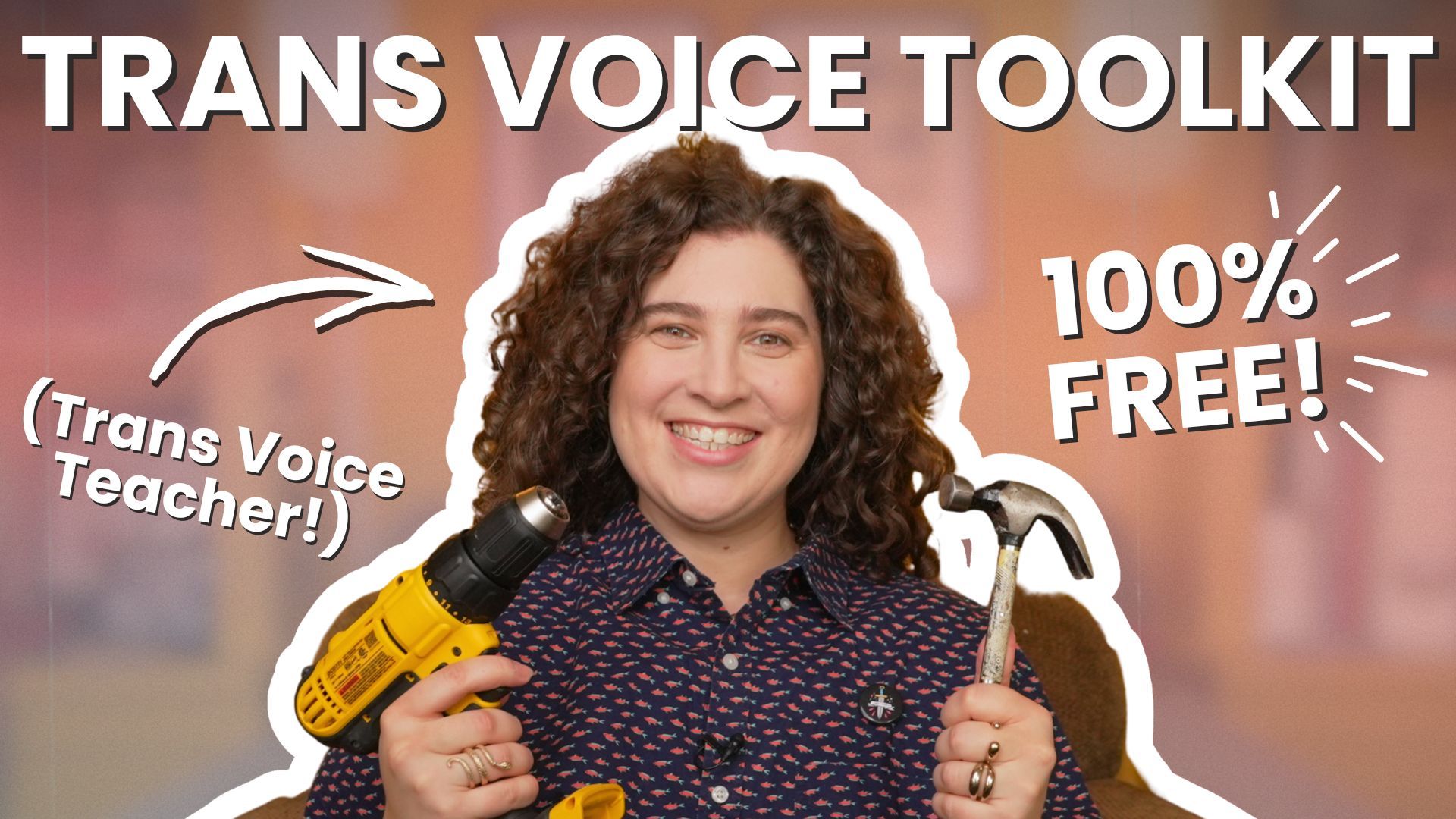How Long Does Trans Voice Training Really Take?
Aug 21, 2025
Spoiler: it’s not as straightforward as you might think.
If you’ve started working on your voice, or are thinking about starting, you’ve probably wondered:
“How long will this take?”
“When will it feel natural?”
“Shouldn’t I be further along by now?”
In this episode of Voice Qs from Trans Folks Like You, I break down the timeline question in honest detail. Because the real answer isn’t specific weeks or months. It’s about skill, habit, and consistency over time.
Watch the full video below or keep reading for the key takeaways.
Voice Training is a Skill and a Habit
One of the biggest reasons voice training takes time is that you’re not just learning how to change your voice—you’re also learning how to do it consistently and automatically.
-
Gaining control over pitch, resonance, and other gendered voice qualities can happen within a few months.
-
Making those changes habitual so they show up in everyday conversation without effort takes much longer.
Most students spend their first year practicing intentionally, reminding themselves to “get back into it,” and slowly building new muscle memory. In the years after, many report a subtle shift: they stop thinking about it so much. Their voice just is.
What Affects Your Timeline?
Some people feel at home in their voice within a few months. For others, it’s several years. Here are a few key factors that shape the process:
1. Your starting point and experience
If you’re already a singer, performer, or someone who plays with their voice, you’ll likely adapt faster—you’ve already got the tools.
Tip: Doing silly voices and impressions can actually be great practice.
2. Your relationship to your voice
If voice work brings up discomfort, dysphoria, or overwhelm, that’s valid—and it might slow things down. Be gentle with yourself. Recognizing emotional resistance helps you work with it instead of against it.
3. Your time and consistency
Short, frequent practice beats long, sporadic sessions. Ten minutes a day is powerful, as long as it’s regular. As my collaborator Tea shared, progress builds slowly but steadily with gentle, sustainable effort.
Real Talk from Tea
Tea jumped in during this video to share her own story of body transformation and why it parallels voice work.
They didn’t start working out until five years into transition, and they started with just 10 minutes a day using 5-pound weights. Years later, they now lift 25 pounds and feel stronger and more connected to their body. The progress wasn’t linear—but it was real.
“The body loves slow, consistent work. It will meet you where you are.”
The same applies to your voice. You don’t have to overhaul everything at once. Start small. Keep going. Adjust when needed.
What If It’s Taking Longer Than You Thought?
If you're feeling stuck, plateaued, or behind, you're not alone. Try:
-
Listening to old recordings to hear your growth
-
Repeating foundational exercises with new attention
-
Trying a new warm-up or technique
-
Getting feedback from a coach or peer
-
Taking a short break (seriously!)
Your voice will evolve. As your confidence, self-image, and identity shift, your vocal habits will shift with them. That’s not a setback—it’s growth.
The Bottom Line
There’s no universal voice timeline. But the time will pass either way.
If you keep showing up—even just a little—you will move forward. And one day, you’ll notice that your voice feels different, easier, more you. You might not even remember exactly when that shift happened.
💛 Keep going. Your voice is worth the effort.
Want more?
Have a voice training question you want me to cover? Drop it in the comments of the video above or contact me. I’d love to hear from you.
Want weekly tips, resources, and insights on trans voice training? Sign up for my newsletter and get the latest content delivered straight to your inbox. It's free!









